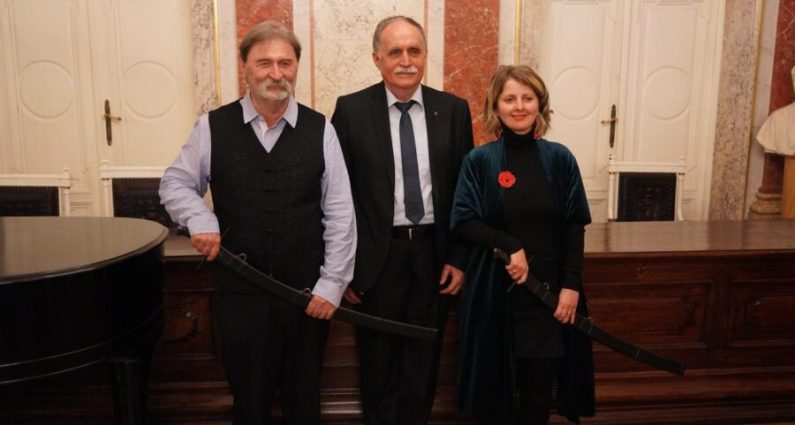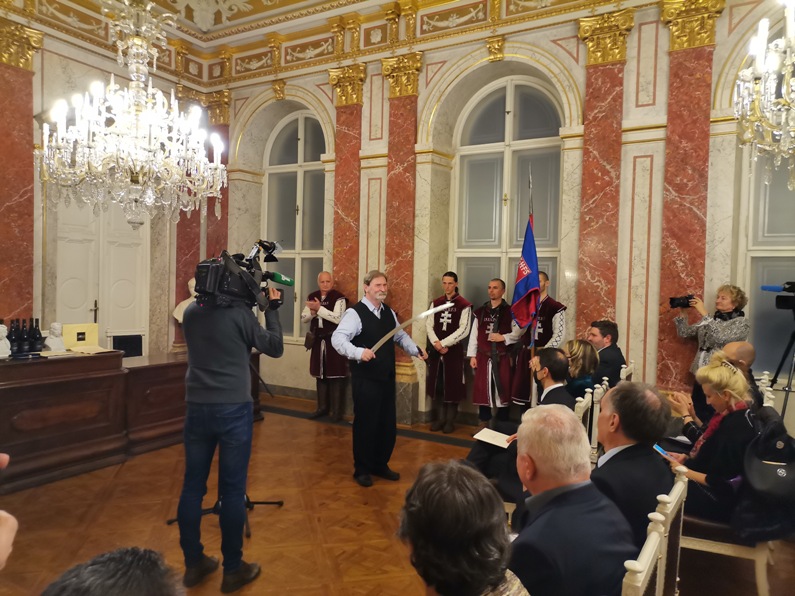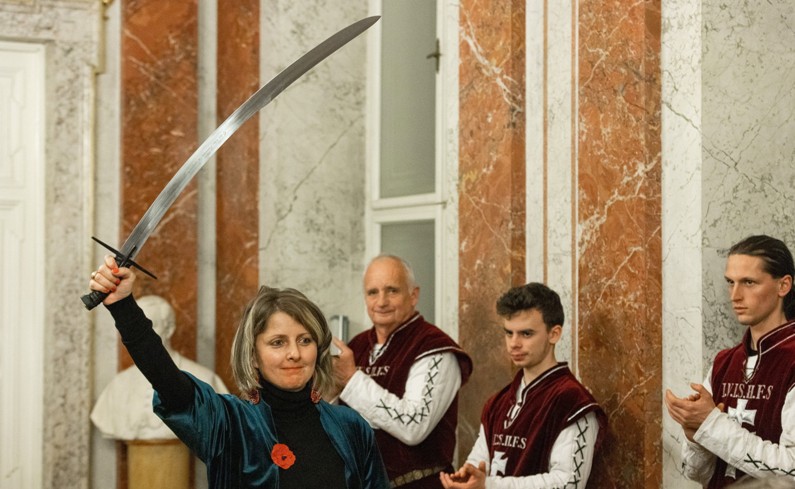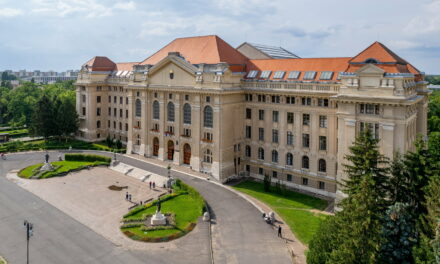This year, the Bálint Balassi Memorial Sword, an international literary award founded in Hungary, was presented for the 26th time. This time, the venue of the traditional St. Valentine's Day sword ceremony was the hall of the Central Priest Education Institute in downtown Pest. This year, Bence Lajos from Muravádík and Elena Lavinia Dumitru from Romania were honored. We asked the founder and organizer of the award, Pál Molnár, president of the Balassi Sword Art Foundation.
- Surely many people know it, since every year on St. Valentine's Day, the awardees can receive the cultural recognition named after Balassi. Fewer people know about the initiative, which has won an international prize since its inception, that it was founded by a private individual, journalist Pál Molnár. What makes a Hungarian pen-twirler decide to take such a bold step without any background?
- Two things gave me the urge. The first and most important one is the buzz around Valentine's Day. In the mid-1990s, I already felt unbearable that a "holiday" was emerging that had nothing to do with us. Since then, I've been more accepting of Valentine's Day: someone sent back my lost annual calendar and said he was sending it back because it's Valentine's Day. The other reason was that I realized that the state art prizes are awarded by the same people who decided what is beautiful even before the system change, or by people who think very much like them. A sovereign fee was needed. Which can be obtained by those whose poetic oeuvre is comparable to the XVI. with that of the 19th century European poet. One of Balassi's most important values was patriotism. One of his teachers, Péter Bornemisza , wrote about blessed Hungary, and Balassi himself introduced the term sweet homeland, which was later Attila Rákóczi, Széchenyi, József , among others. Of course, the poet to be honored must be one of the best poets, with at least two decades of poetic history and several volumes of poems. The foreign translators must be among renowned literary figures, and they must translate some of Balassi's poems into their mother tongue.

From left to right: poet Lajos Bence, award founder Pál Molnár and translator Elena Lavinia Dumitru (photo: Slovenian State Television)
- Thanks to our studies, Balassi's name has become fused with the concept of valor, so it is not surprising that the awardees can each receive a sword as a symbol of recognition. Nowadays, it is almost impossible to get a sword. Where will it be from?
- From the beginning, the excellent József Fazekas has been making the sabers, so far we have handed over 49 Balassi swords, all forged, polished and polished by him in his workshop in Bonyhád. Balassa Menyhért's is in the National Museum , its remains, which were found in the man's grave. Jóska Fazekas designed the Balassi sword based on this model, which dates back to the 16th century. Today's masterpieces of Hungarian Végvár swords from the 19th century.
– I think that the Balassi sword, or more precisely what the award represents, was not to everyone's liking. Is it a value left-liberal attack, or is it the only value-based recognition that has escaped attack?
- At the very beginning of the story, Népszabadság came to us, we did not react to this, and not long after, the author - we don't know for what reason - gently retracted his outburst. In fact, years later, for a long time, Népszabadság itself was the first to publish the sword board's decision: the names of that year's honorees. This happened because one of the members of the board of trustees - I was the one - passed the information on to the then deputy editor-in-chief of the daily newspaper. There are no attacks on the saber from the left-liberal side, on the other hand, silence is used in a professional manner.
– You don't just talk about the award, but about the Balassi process, but it's not clear what we mean by this?
– The motto of the European Balassi process: discover your own culture. Hungarian culture is a big ocean. We only get to know gulfs, at most seas, from it in our life path. We should discover more of its value: it gives us enormous strength, especially in today's world. I encourage representatives of other European cultures to do so. Valentine's Day would also be a good opportunity for them to polish their own cultural treasures. Balassi himself is somewhat a treasure of German, Italian, Polish, Croatian, Romanian and even Turkish literature. The Szent László countries – our country, Poland and Croatia – can also highlight common ancient values. Of course, we have to explore and celebrate the gems of Hungarian culture in the area from Lajta to the Berecki Mountains, from Dunajec to Tengermellék.

Lajos Bence with the Balassi sword (photo: Csenge-Hajna Molnár)
– I know, since we have been colleagues for many years, that your recently published writings of Christian-national commitment also prove this. What do you hope or fear for the next 4 years?
– I myself am a follower of St. László. Saint István baptized Hungarians with laws and Saint László with spirit. A beautiful Christian arc stretches through Hungarian history: Saint László, Saint Elizabeth, III. Béla, King Mátyás, Balassi, Pázmány, Rákóczi, Széchenyi, Mindszenty - to highlight just one greatness from each century. This special value, perhaps unique on the continent, must be shown to our young people in an attractive, modern version. Feel the great power, and what is extremely important: be proud of it. Take that pride. It is essential that we give our young people a way to discover Hungarian culture in the capital of the Hungarians. Let's open up the possibility for the young people themselves to create and create new Hungarian cultural and artistic values, even in the fine arts, cinematography, and new genres of the world wide web. With these, try to make an impact and assert yourself beyond Lajta and beyond the Berecki mountains. This can protect society from the worthlessness that pours upon us. And this can also be an antidote to the invasive politics of lies, which has now suffered an election defeat, but its extremists are already on the loose. We can protect our sweet country if we set an example of humanity and a form of valor to the next generations.
Author: Jr. György Tóth
(Cover photo: MTI/Balázs Mohai)













